US responsible for terrorism in Xinjiang: China
Chinese state media said that unrest in Xinjiang is due to US influences in the region and not social disparities.
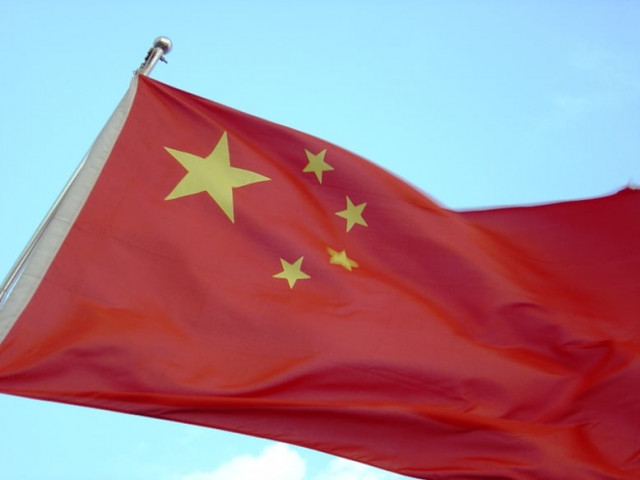
China to crack down on "terrorist groups" operating in the Xinjiang province. PHOTO: FILE
Beijing denies that unrest in the vast region bordering Central Asia - which last week left at least 35 people dead - is due to ethnic tensions between the Uighurs and China's majority Han.
It has vowed to crack down on "terrorist groups", ordering military exercises ahead of Friday's anniversary of major riots in 2009 that left around 200 dead.
But rights groups for the mostly Muslim Uighurs blame unrest on economic inequality and religious repression, something that Washington has raised concerns against.
The People's Daily, a mouthpiece for the ruling Communist Party, slammed the US government and media for what it said was its role in the violence.
"For fear of a lack of chaos in China," it said in a commentary, the US was "conspiring to direct the calamity of terrorist activities toward China".
"America's double standards on the issue of countering terrorism are no different than incitement and indulgence...how is this different than those who act as accomplices to terrorism?" it said.
It asked if the 9/11 attacks and Boston marathon bombings in April meant "America's ethnic and religious policies also have problems", while rejecting such linkages in China.
"The violent terrorist incidents in Xinjiang are not an ethnic issue or a religious issue," it said, calling the "massacres" of officials and bystanders "inhumane".
According to the official Xinhua news agency, "knife-wielding mobs" attacked police stations and other sites in the town of Lukqun last Wednesday before security personnel arrived and opened fire. At least 35 people were killed.
Two days later, Xinhua said that more than a 100 "terrorists" provoked "riots" in the prefecture of Hotan, attacking people "who had gathered at local religious venues".
Last Friday a US State Department spokesman said it was "deeply concerned about the ongoing reports of discrimination against and restrictions on Uighurs in China”.
He said the US urged a "transparent investigation" but did not want to "draw broader conclusions" about the incidents.
The state-run Global Times criticised Western media and public opinion on Monday for misrepresenting the violence as ethnic conflict, referring to it instead as "violent terrorism fuelled by the West".
"Western public opinion is fooling these ignorant extremists through cheap support," the paper said in an editorial.
This "indulges the views of these violent terrorists, who are in fact a small, isolated group", it said.
In a separate article only available in Chinese, the paper accused members of the "East Turkestan" movement of joining "terrorist groups" in Syria to fight the government of Bashar al-Assad before returning to Xinjiang to plot attacks.
It cited the case of a man in his 20s recruited by an "education and mutual aid association" acting as a terrorist training front.
After being sent to Syria, the recruit was ordered back to Xinjiang to "raise" the level of the struggle there, where he was caught.
The Uyghur World Congress hit back at what it called China's "distorting accusations".
"Uighurs live in an outdoor prison," it said in an emailed statement, adding that their "resistance had nothing to do with terrorism".
On Saturday, large sections of the Xinjiang capital Urumqi were shut down as military vehicles took to the streets with at least 1000 personnel from the People's Armed Police, part of China's armed forces responsible for law enforcement and internal security during peacetime.
Beijing's assertive presence on the ground comes ahead of the sensitive anniversary of riots between Uighurs and China's ethnic majority Han four years ago.
The Muslim fasting month of Ramadan is also expected to begin next week.
In recent decades many Han Chinese have relocated to Xinjiang, which is rich in coal and gas, provoking friction.
The two communities tend to live in separate neighbourhoods in Urumqi, and a greater security presence could be seen in the Uighur area on Monday.
Paramilitary forces stood in clusters every 100 metres or so around the grand bazaar, and police vehicles drove by occasionally.
Beijing denies repressing China's ethnic minorities, who make up less than 10 percent of the national population and enjoy some preferential policies.

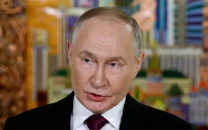
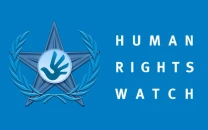
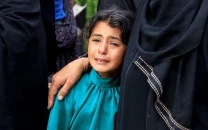
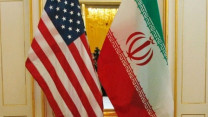
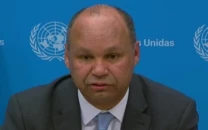
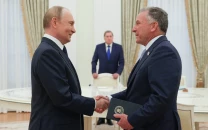












COMMENTS
Comments are moderated and generally will be posted if they are on-topic and not abusive.
For more information, please see our Comments FAQ